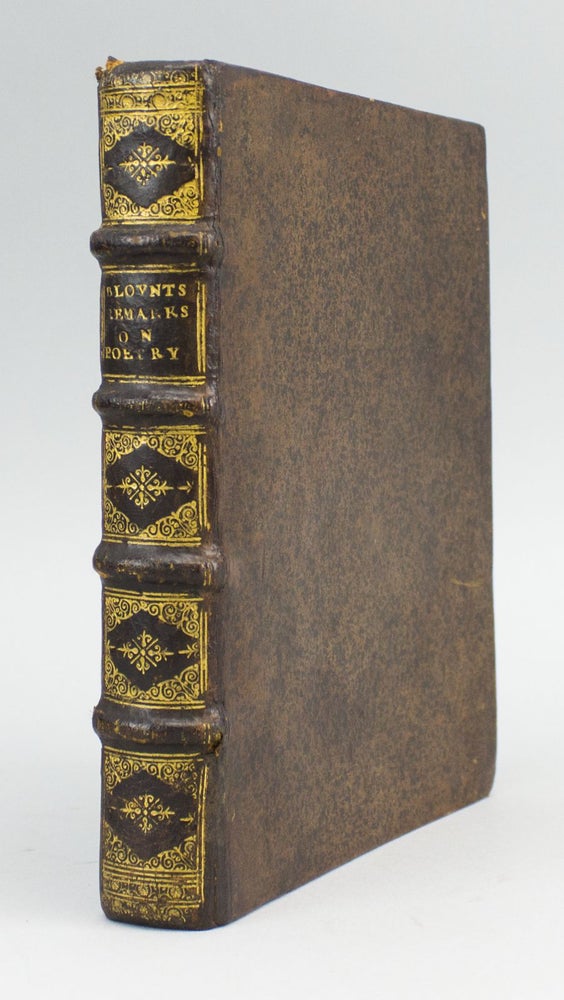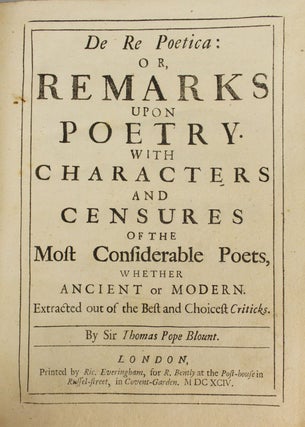DE RE POETICA: OR, REMARKS UPON POETRY. WITH CHARACTERS AND CENSURES OF THE MOST CONSIDERABLE POETS, WHETHER ANCIENT OR MODERN.
(London: Printed by Ric. Everingham, for R. Bently, 1694). 203 x 159 mm. (8 x 6 1/4"). 6 p.l., 129, [3] pp.; 248 pp. Two parts in one volume. FIRST EDITION.
Really excellent contemporary dark sprinkled calf, raised bands, spine gilt in compartments with central fleuron and filigree cornerpieces, gilt titling (portions of the joints apparently repaired with great skill). Front pastedown with engraved armorial bookplate of "Rolle" (see below). Lowndes I, 221; Wing B-3347. ◆Short crack at top of rear joint, front board just slightly tending to splay, minor wear to corners and covers, but the attractive period binding entirely solid and generally very well preserved. Most of the rear free endpaper torn away, isolated rust spots and marginal stains, but VERY FINE INTERNALLY, the text unusually clean and fresh and printed within ample margins.
This is a beautiful copy, with important provenance, of a survey of various poetic forms, coupled with short biographies of major ancient and modern poets. Politician and writer Thomas Blount (1649-97) begins by discussing things a poet should or should not do: he must keep his "wit and Fancy" within bounds, while still displaying a sense of humor; he should write about love but avoid "obscenity"; he should not be addicted to flattery. These admonitions are followed by an examination of various forms of poetry, from epics, elegies, and odes to burlesques, lampoons, and farces. The second half of the work, "Characters and Censures," contains 67 short biographies and critical evaluations of poets from Aeschylus to Shakespeare. The book relies heavily on prior scholarly works: Blount quotes Dryden so extensively that Macdonald includes the book in his Dryden bibliography, noting that it "is a laborious compilation of other people's opinions." Blount must, however, be given credit for citing his sources (as opposed to silently pilfering their words and ideas) and for weaving the writings of others into a very readable narrative. His article on Shakespeare is particularly valuable as a synopsis of 17th century opinion on the merits of that author, whose place in the literary pantheon was not yet secure. Our previous owner is almost certainly John, Baron Rolle (1751-1842), whose collection was described in a "Catalogue of the Library [of Lord Rolle] at Bicton House, Devon," published in 1850. Although a dedicated career politician and noted philanthropist, Rolle is best remembered as the aging peer who tripped and fell down the steps when approaching Victoria's throne at her coronation. The new queen inspired both admiration and affection by rising from her seat and walking down the steps to allow the elderly Rolle to pay his homage. More important from a bibliophilic perspective, books with the "Rolle" bookplate are renowned for being remarkably well preserved. (ST12334)
Price: $1,900.00


